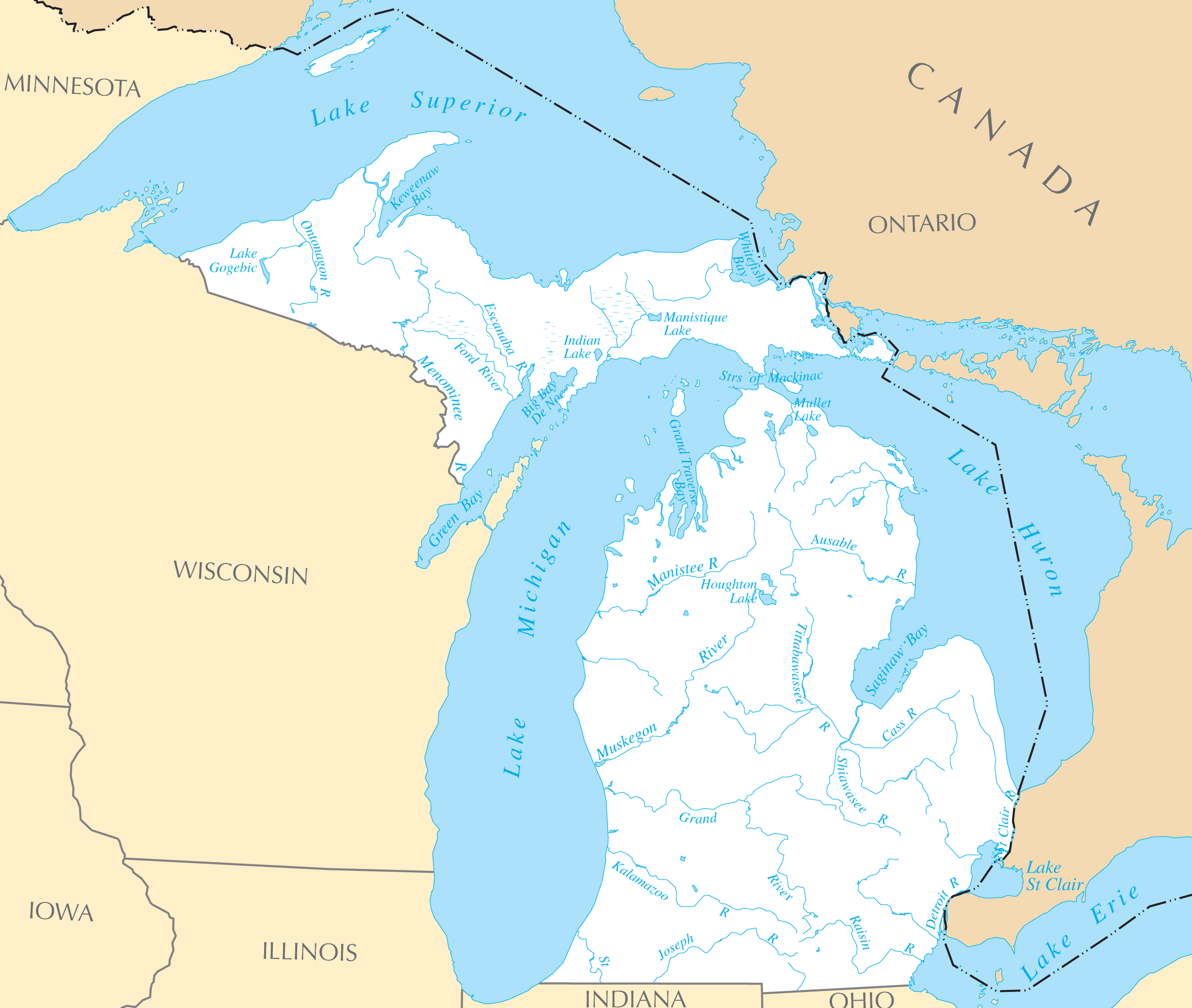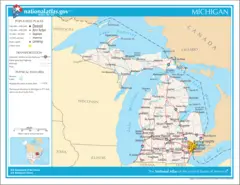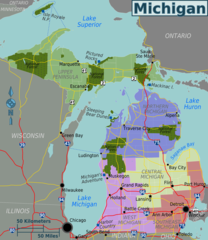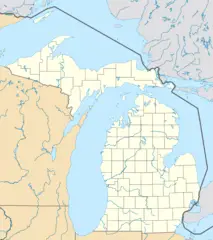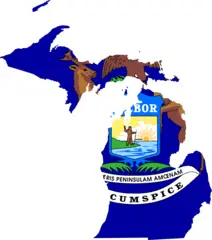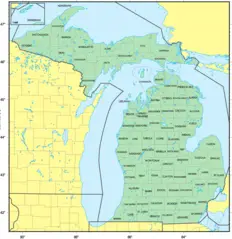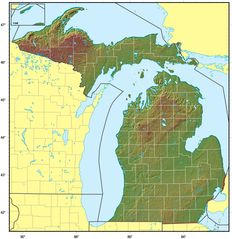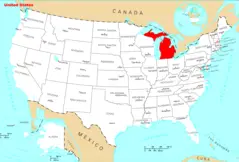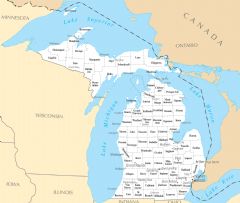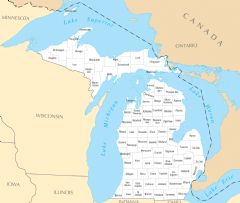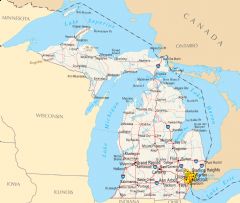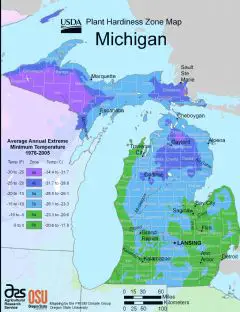Michigan Rivers And Lakes
Michigan is defined by its abundant inland lakes and waterways. Some of its most notable rivers include:
Detroit River
The Detroit River connects Lake St. Clair to Lake Erie along Michigan's border with Canada. Facts about the Detroit River:
- It flows 32 miles and forms part of the waterway linking the Great Lakes.
- The river passes by the major city of Detroit, Michigan.
- Early French settlers established farms and vineyards along the Detroit River.
- Today it supports important international commerce and trade.
Grand River
The Grand River flows through western Michigan into Lake Michigan. Details about the Grand River:
- It spans over 260 miles through rural west Michigan.
- The river passes through the cities of Jackson, Lansing, and Grand Rapids.
- It provides recreation through a designated water trail system.
Muskegon River
The Muskegon River flows over 200 miles across central Michigan to Lake Michigan. Facts about the Muskegon River:
- It is noted for excellent fishing for trout, salmon and steelhead.
- The river flows through Big Rapids, Michigan and nearby Houghton Lake.
- It features whitewater segments popular for kayaking and rafting.
Notable Lakes in Michigan
Michigan borders four of the five Great Lakes:
- Lake Michigan - Borders Michigan's western shores and Lower Peninsula.
- Lake Huron - Forms much of northeastern Michigan's coastline.
- Lake Superior - Located in Michigan's remote Upper Peninsula.
- Lake Erie - Forms part of Michigan's southeastern border with Ontario.
Michigan's wealth of rivers and lakes provide vital resources for commerce, recreation, and the natural environment across the state.
